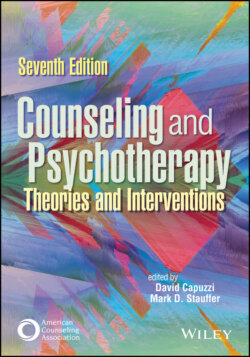Читать книгу Counseling and Psychotherapy - Группа авторов - Страница 128
Defense Mechanisms
ОглавлениеThe concept of defense mechanisms can be observed daily across cultures and contexts, even among those who are not familiar with psychoanalytic theory. These defenses are a function of the ego and protect the individual from experiencing anxiety and guilt provoked by the discord between the id and superego. Each serves as a protective emotional shield against inappropriate emotional responses to situations. There are 11 primary defense mechanisms:
Compartmentalization is a process of separating parts of the self from awareness of other parts and behaving as if one has separate sets of values.
Compensation is a process of psychologically counterbalancing perceived weaknesses by emphasizing strength in other areas.
Denial is refusing to accept reality and acting as if a painful event, thought, or feeling does not exist. It is considered one of the most primitive of the defense mechanisms because it is characteristic of very early childhood development.
Displacement is the redirecting of thoughts, feelings, and impulses from an object that gives rise to anxiety to a safer, more acceptable one.
Intellectualization is the use of a cognitive approach without the attendant emotions to suppress and attempt to gain mastery over the perceived disorderly and potentially overwhelming impulses.
Projection is the attribution of one’s undesired impulses to another.
Rationalization is the cognitive reframing of one’s perceptions to protect the ego in the face of changing realities.
Reaction formation is the converting of wishes or impulses that are perceived to be dangerous into their opposites.
Regression is the reversion to an earlier stage of development in the face of unacceptable impulses.
Repression is the blocking of unacceptable impulses from consciousness.
Sublimation is the channeling of unacceptable impulses into more acceptable outlets.
